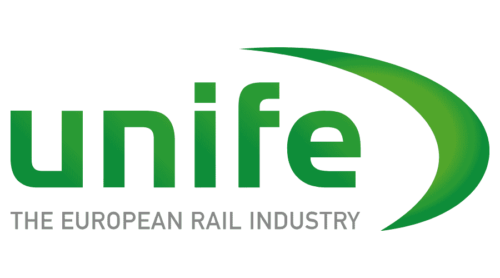UNIFE JOINS THE PARTNERSHIP ON SUSTAINABLE LOW CARBON TRANSPORT (SLOCAT)
The Partnership has as its overarching goal to mobilize global support to reduce the growth of GHG emissions generated by land transport in developing countries by promoting more sustainable, low carbon transport. It promotes the integration on sustainable transport in global policies on sustainable development and climate change. The thematic scope of the Partnership is on land transport (both motorized and non-motorized) in developing countries and includes freight and passenger transport.
This goal is fully in line with UNIFE’s vision for sustainable mobility and rail as the backbone of sustainable transport.
UNIFE’s membership to SLoCaT will be shortly followed by a transport dedicated event to take place on 17 November in Warsaw, during the 19th Conference of the Parties to the UNFCCC. The event, which is organized by SLoCaT and the Bridging the Gap Initiative, is co-sponsored by UNIFE and aims at demonstrating the contribution that transport can make to mitigation and adaptation, specifically in the context of sustainable development, while promoting the integration of transport in policy making on climate change mitigation and adaptation under the UNFCCC.
UNIFE’s member page on SLoCaT: http://www.slocat.net/member/1081
More information on Transport Day 2013: http://www.slocat.net/transportday2013
Programs & Projects on Transport & Climate Change
UNIFE’s involvement in promoting sustainable, low-carbon transport builds upon a long-established cooperation among the rail sector in EU-funded collaborative research projects (6th and 7th Framework Programme).
Significant reductions in emissions due to transport are being demanded by governments and policy-makers, as well as by society. Reductions in the energy consumption of railway rolling stock are therefore an important objective and a core activity for UNIFE, which can be seen in ongoing projects:
CleanER-D: the Clean European Diesel project aims to develop, improve and integrate emissions reduction technologies for diesel locomotives and rail vehicles.
Duration: June 2009 - May 2013
OSIRIS (Optimal Strategies to Innovate and Reduce energy consumption In urban rail Systems): the project concept is to develop strategies for reduction of energy consumption in an urban context by implementing technological and operational solutions, while testing/demonstrating/assessing their individual and combined benefits in real case scenarios.
Duration: January 2012 - December 2014
MERLIN (Management of Energy for smarter RaiLway systems in Europe: an INtegrated optimisation approach): MERLIN’s main aim and purpose is to investigate and demonstrate the viability of an integrated management system to achieve a more sustainable and optimised energy usage in European electric mainline railway systems.
Duration: October 2012 - September 2015
SUSTRAIL (the sustainable freight railway: designing the freight vehicle – track system for higher delivered tonnage with improved availability at reduced cost): this research project aims to contribute to a new era in increased competitiveness of the rail freight sector by adopting a holistic approach, implementing a clear methodology and viable procedures for a combined improvement in both freight vehicles and track components.
Duration: June 2011 - May 2015
REFRESCO (towards a REgulatory FRamework for the usE of Structural new materials in railway passenger and freight CarbOdyshells): new materials pave the way for the construction of lighter rolling stock, which will consume less energy and help reduce the emissions of rail transport. The overall objective of REFRESCO is to set the framework for the implementation of new materials in the railway sector through the evolution of certification processes for rolling stock.
Duration: September 2013 - February 2016
Noise and vibration also are key environmental concerns for society. New products are proven not to exceed the necessary minimum noise level and avoid disturbance. However, to further improve the environmental performance of rail, the industry also investigates technologies to mitigate noise for existing fleets and networks:
RIVAS (Railway Induced Vibration Abatement Solutions): this research project aims to reduce the environmental impact of ground-borne vibration while safeguarding the commercial competitiveness of the railway sector.
Duration: January 2011 - December 2013
ACOUTRAIN’s main objective, promoting the interoperability of rail traffic in Europe, can be detailed as dramatically reducing the time and cost of the TSI Noise conformity assessment procedure, harmonising the process for noise conformity assessment across Europe by providing standard procedures, clarifying the application of the simplified evaluation method introduced by the partial revision of the TSI Noise, and investigating a wider technical scope and impact of the certification procedure.
Duration: October 2011 - September 2014
For more information, please contact: Jonathan Nguyen at jonathan.nguyen(at)unife.org
